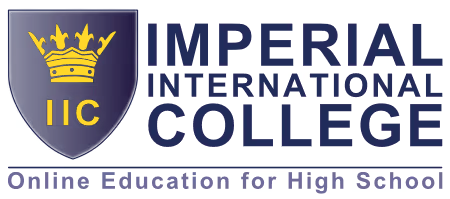
An overview of the IG and AS-level qualifications
Introduction
At IIC we pride ourselves on offering support to private students studying toward the valuable International GCSE and AS-Level (IG and AS) qualifications. We are not a registered Cambridge School, however we have supported private students writing these exams for about the last 10 years. Through this we have experienced firsthand how, as a whole, the IG and AS level content and approach have engendered growth and independent thinking, allowing students to reach their full academic potential.
The International GCSE and AS-Level qualifications are highly sought after by many universities and workplaces, globally. Both qualifications purport a flexible and stimulating curriculum, aimed at helping students develop creative and critical thinking, problem solving skills and overall analytical awareness.
All available subjects are covered in extensive detail, ensuring that students leave their schooling careers with the correct tools to further their studies or enter the workplace. The Cambridge system puts a lot of focus on analysis of concepts and the relation of concepts to real world situations, creating content that is easy to understand and relatable for students.
... we have experienced firsthand how, as a whole, the IG and AS level content and approach have engendered growth and independent thinking, allowing students to reach their full academic potential.
The system encourages students towards independent thinking and helps them to develop strong research skills. This provides students with important tools to manage their own studies, as well as receive enjoyment from studying the various topics. Students are encouraged to be flexible in their thinking and organised in their studies. This prepares them both academically and mentally for the world after school.
Academic structure
The qualifications are based off of an international curriculum which can be tailored to local content. This full Cambridge system is divided into 4 stages, which include Cambridge Primary, Cambridge Lower Secondary, Cambridge Upper Secondary and Cambridge Advanced.
- Cambridge Primary and Lower Secondary are aimed at students who are aged 5 to 14 – covering elementary and middle school levels. These two stages provide a broad, well developed curriculum including 10 different subjects, and aim to provide students with a solid foundation to their further schooling.
- Cambridge Upper Secondary and Cambridge Advanced are the two stages that IIC currently offers support for, and are aimed at grade 10 – 12 students. These two stages offer a very wide variety of different subjects that students can choose from ( See our supported subject list). Students are encouraged to pick subjects that they are interested in and that will further their chosen academic and career paths ( See our subject choice guidelines). Cambridge Upper Secondary students will graduate with an International GCSE qualification, and Advanced Cambridge students will graduate with an AS Level or A Level qualification (IIC currently does not offer support for the A-Level qualification as this is a post-matric or Gr 13 qualification). Each of these stages builds on the previous stage, and adds depth and continuous development to a student’s schooling.
Overall, the qualifications offer a diverse and stimulating academic curriculum designed to meet the needs of all students. This academic structure has been carefully planned and thought out to help motivate students, and encourage them to delve into their studies with interest and enthusiasm.
The perfect academic system for online learning
It isn’t difficult to see why the IG and AS qualifications are of such benefit to a student and this is one of the reasons that IIC chose to support students studying towards them! The curriculum promotes independent thinking and the development of research skills which are crucial to online learning. The connection to real world situations implemented in the qualifications allow students at IIC to understand concepts easily, and broaden their mindsets. Important self study skills and time management are also entrenched in the Cambridge curriculum, allowing online students to thrive in an academic environment, as well as learn important life skills.
Overall, we believe that the IG and AS qualifications are the perfect qualifications to use in conjunction with online learning. Achieving them has allowed our students to reach their full potential.
Important self study skills and time management are also entrenched in the Cambridge curriculum, allowing online students to thrive in an academic environment, as well as learn important life skills.
History of Cambridge assessment
Cambridge Assessment, formerly known as the ‘Local Examinations Syndicate’, was founded over 150 years ago by the University of Cambridge in the United Kingdom. The original aim of this assessment board was to raise the standard of education offered by schools. This was achieved by compiling and administering examinations to students who did not belong to the University and its affiliated schools. In 1858, the first set of 370 students not affiliated with the University of Cambridge sat exams set by Cambridge. International examinations took off in 1864. Since then, the number of students taking the Cambridge exams has grown to more than 8 million students a year, across 160 countries.

In 1998, the structure of the Local Examinations Syndicate was overhauled in order to create a new examination structure under three exam boards, following which it adopted the name ‘Cambridge Assessment’ in 2005. Cambridge Assessment controls these three exam boards, and endeavours to carry out essential and progressive research with respect to education.
This article was contributed by Imperial International College.

